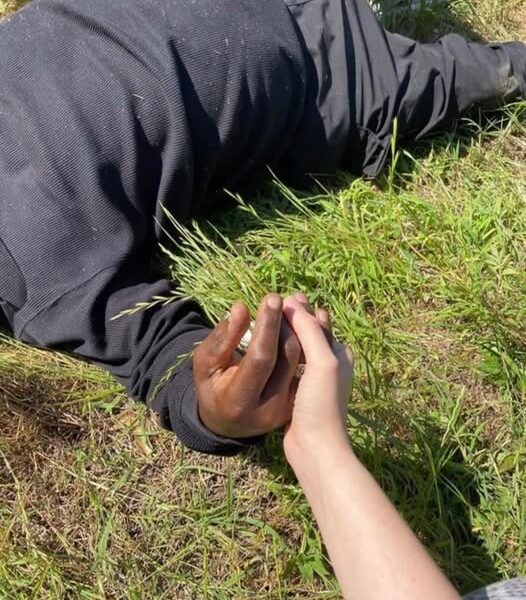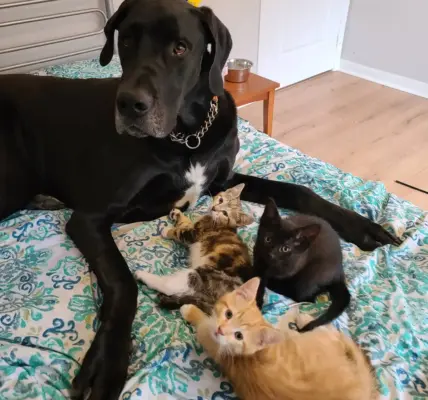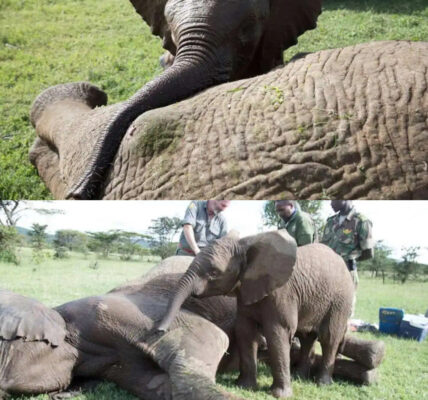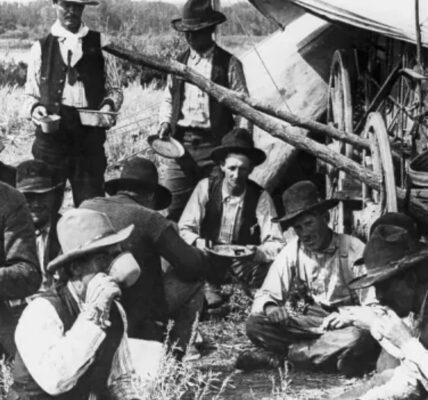
It was just another ordinary evening, the kind where your mind is wandering between what you need to do at home and the endless thoughts of the day. I was driving, windows down slightly, the hum of the tires on the asphalt filling the background, when everything changed in a heartbeat.
Out of nowhere, a motorcycle was struck from behind by a speeding vehicle. The force was unimaginable, violent enough to send the rider—Joe, as I would soon know him—flying nearly twenty-five feet into the air. He landed hard in a shallow ditch beside the road. For a moment, I froze. My chest tightened. My stomach lurched. And yet, I didn’t hesitate.
I slammed on the brakes, pulled over, grabbed my phone, and dialed 911. My hands were shaking, but I didn’t let go. I climbed down into the ditch, my heart pounding, expecting the worst. Joe wasn’t moving. His helmet was askew, his bike crushed beside him. The world felt both impossibly fast and impossibly still all at once.
Then, as if fate had planned it, a stranger appeared—another driver, a medical professional, had stopped. Without a word, they jumped in to help, assessing the situation calmly while I stayed close to Joe, holding his hand, whispering questions, anything to keep him alert and aware.
“Can you hear me?” I asked.
“Where’s your wife?” I continued softly.
And Joe responded, slowly at first, then with a faint humor that made my chest ache with relief. He told me about his wife, about their life together. He joked about his motorcycle, how he always tried to push it faster than it should go. He even asked me to take photos—yes, photos—so that he could have a “cool story” to tell his friends someday.
It was surreal. Here, in the shadow of what could have been a tragedy, life persisted. Humor, hope, and humanity found their place in a ditch by the roadside. I kept talking to him, holding his hand, trying to be the steady presence he needed until the sirens in the distance signaled help was on the way.
When EMS arrived and began taking over, I stepped back, wiping sweat and tears from my brow. A woman who had been watching from the roadside approached me. “I’m shocked you did all that,” she said. My face must have reflected my confusion, because she added, “Honey, this is the South. I’m just saying—I’m shocked you did all that for him.”
Her words hit me in a way I wasn’t expecting. It wasn’t pride that I felt, nor guilt. It was a deep, resonating sadness that something as basic as helping a human being in need could be seen as extraordinary. I hadn’t cared what he looked like. I hadn’t cared about how long I would have to wait. I hadn’t even considered social distancing, masks, or personal safety. He was a human being in danger—and that was enough.
It reminded me of something essential that so many forget: none of us are born to hate. Hatred is learned, taught through fear, ignorance, and prejudice. Kindness, compassion, courage—these are choices, and they are innate in all of us if we allow them to surface. Nelson Mandela once said, “If they can learn to hate, they can be taught to love.” That day, Joe was my lesson, and perhaps I was his. Love, genuine love, knows no boundaries. It transcends race, politics, religion, and background. It isn’t selective—it is universal. Humanity itself is our race, and kindness is the language we all understand.
Driving away that night, I replayed every detail: Joe’s hand in mine, his faint laughter, the way he looked at me as if somehow knowing we were in this together. I thought about the woman who watched, and how easily acts of selfless care can surprise people. I thought about the world and how desperately it needs reminders that simple acts of love are stronger than fear, louder than hatred, and infinitely more powerful than indifference.
And as I finally reached home, my body exhausted but my spirit oddly lifted, I realized that the story wasn’t about me. It was about Joe, about every human being who wakes up each day hoping someone will care, hoping someone will be there. It was about us—the choices we make to step in, to hold a hand, to speak a kind word, to act when action is needed. That evening, under the fading sun, in the middle of an ordinary life, I understood something extraordinary: love is a choice, and when we choose it, we remind the world why we are human.




